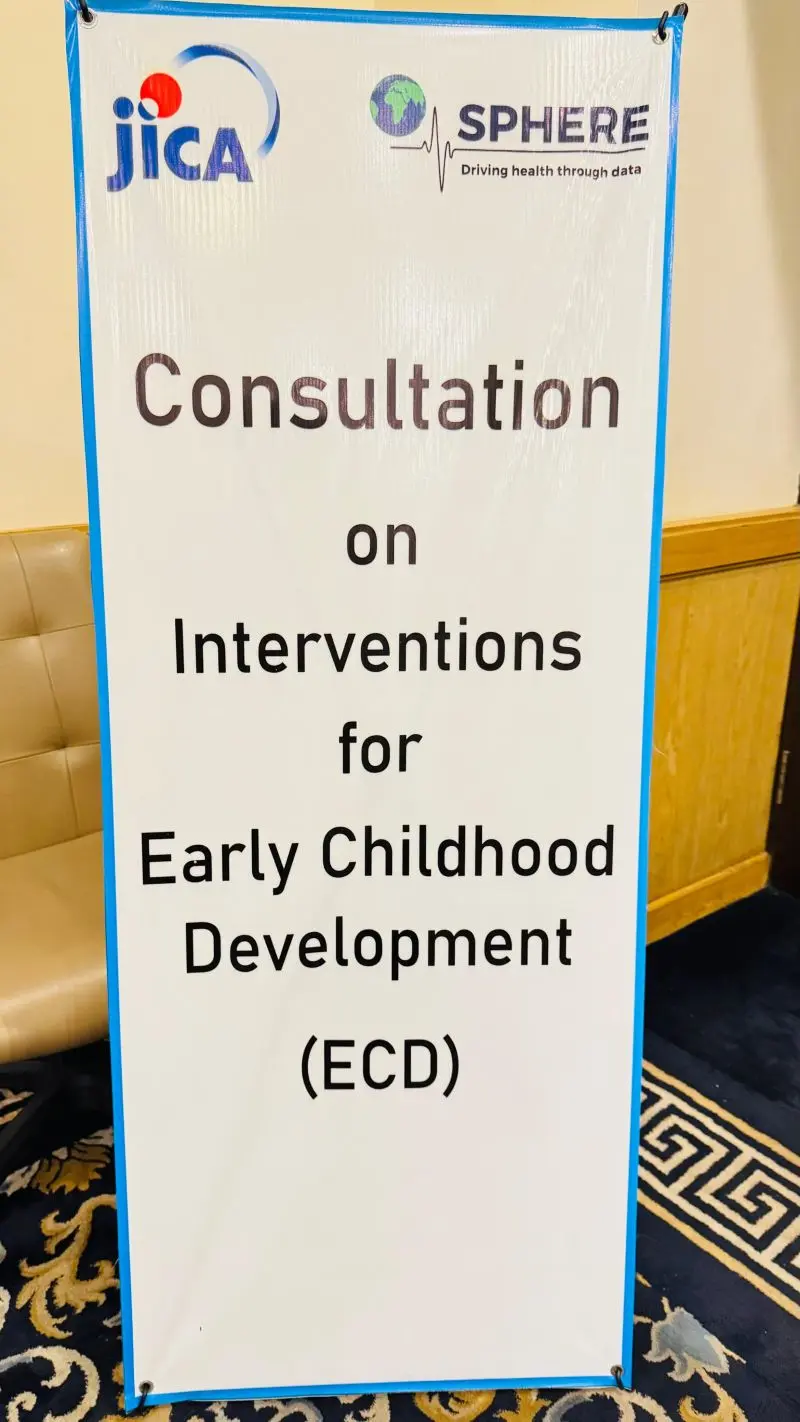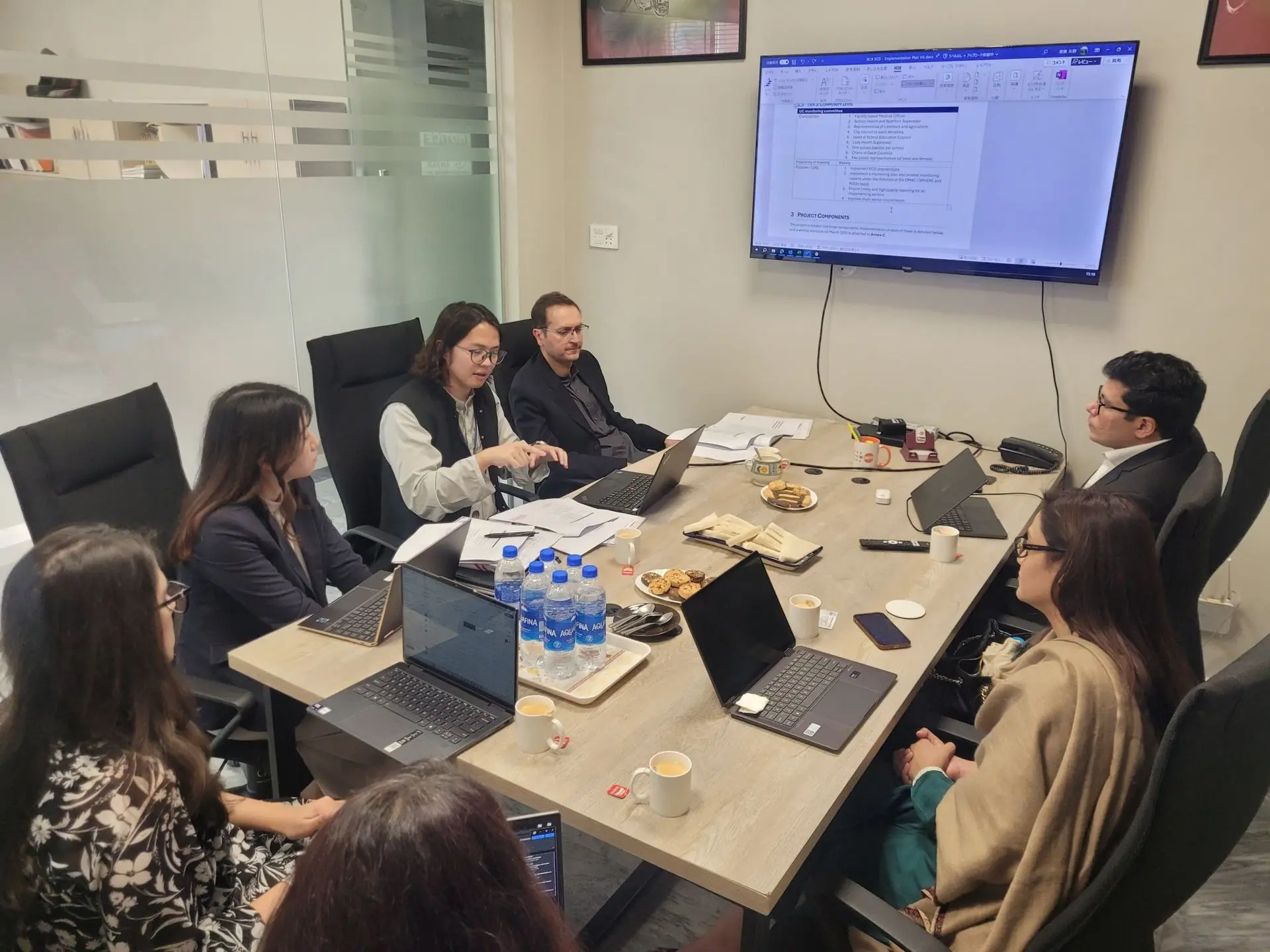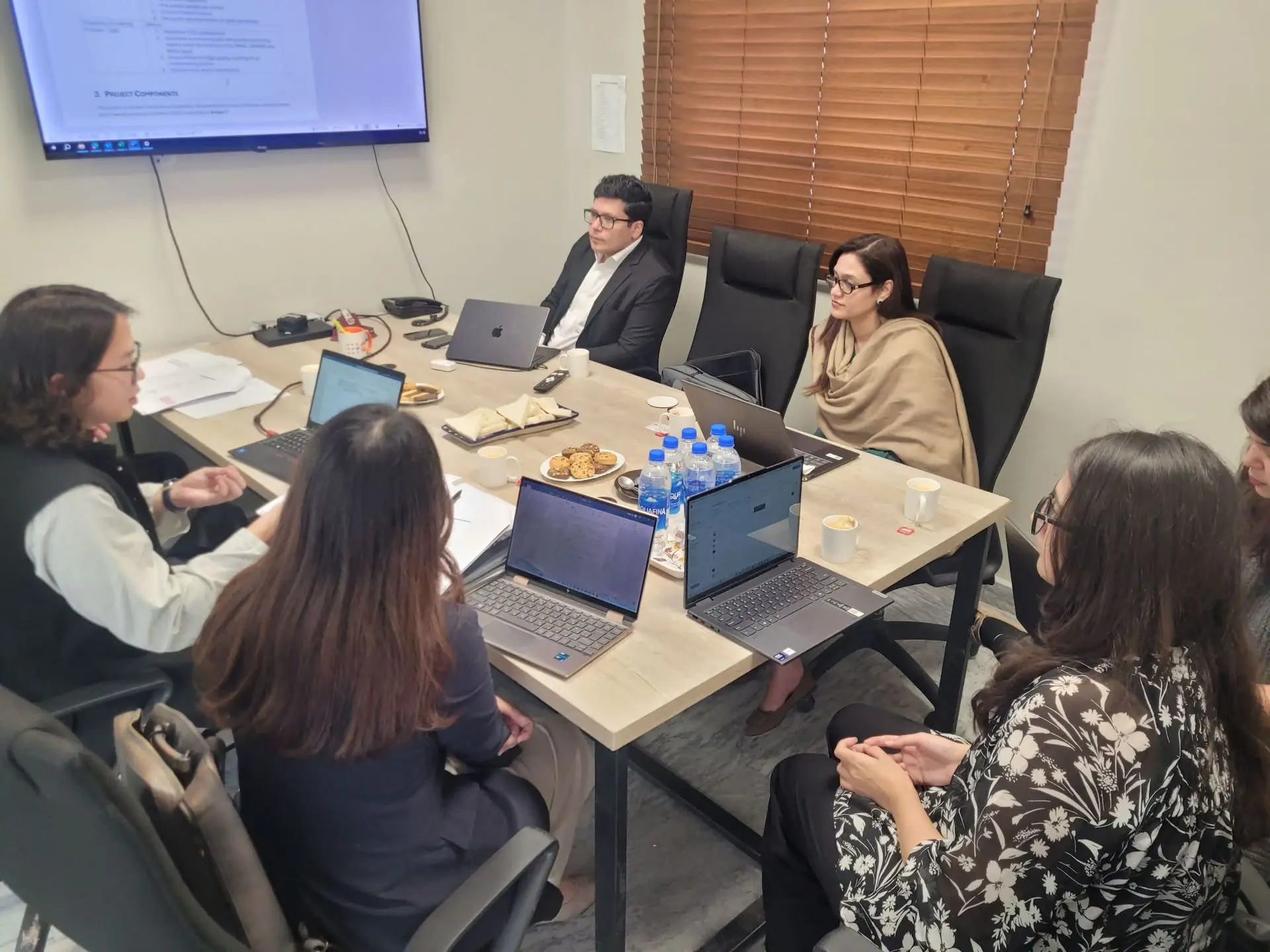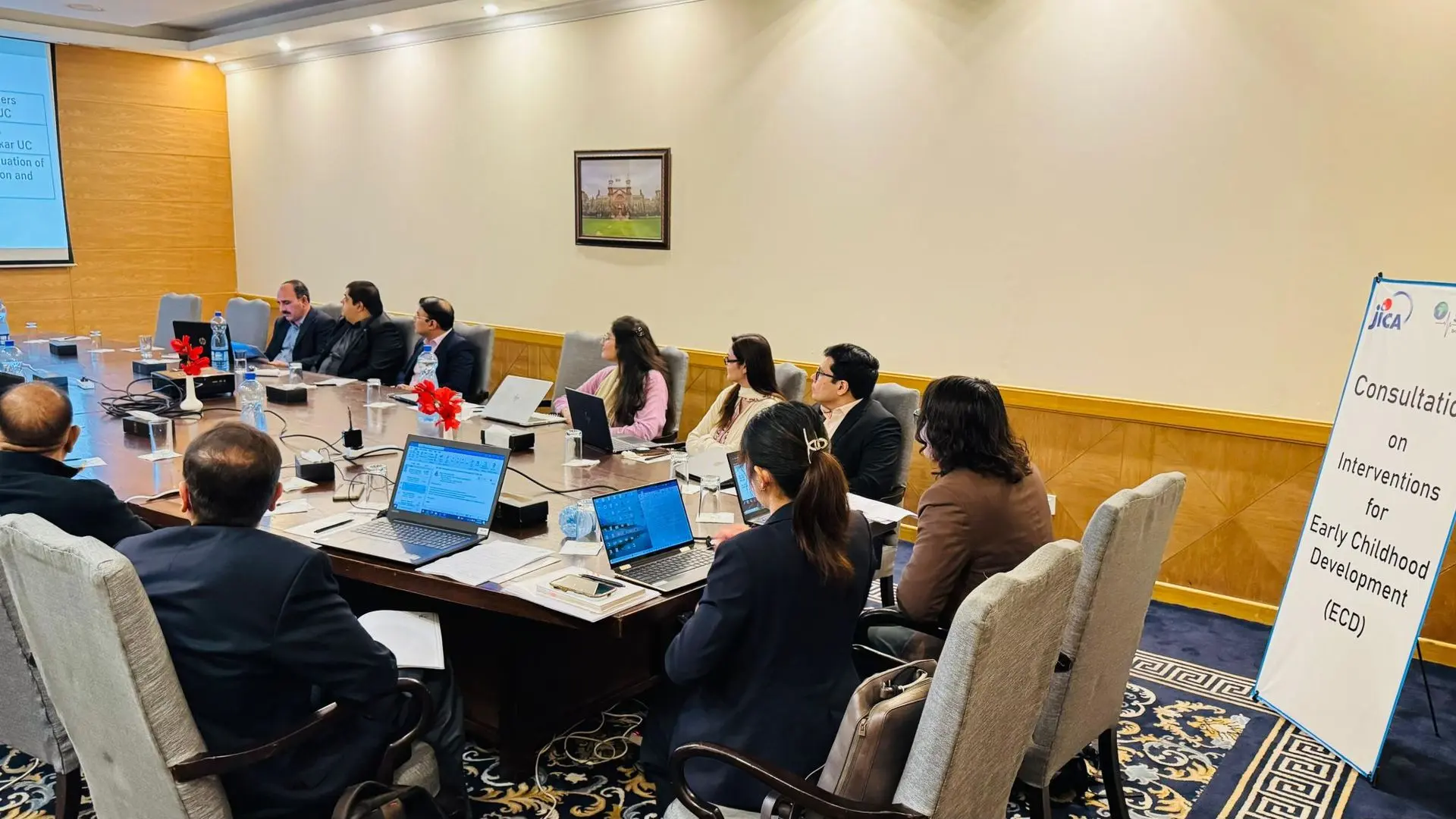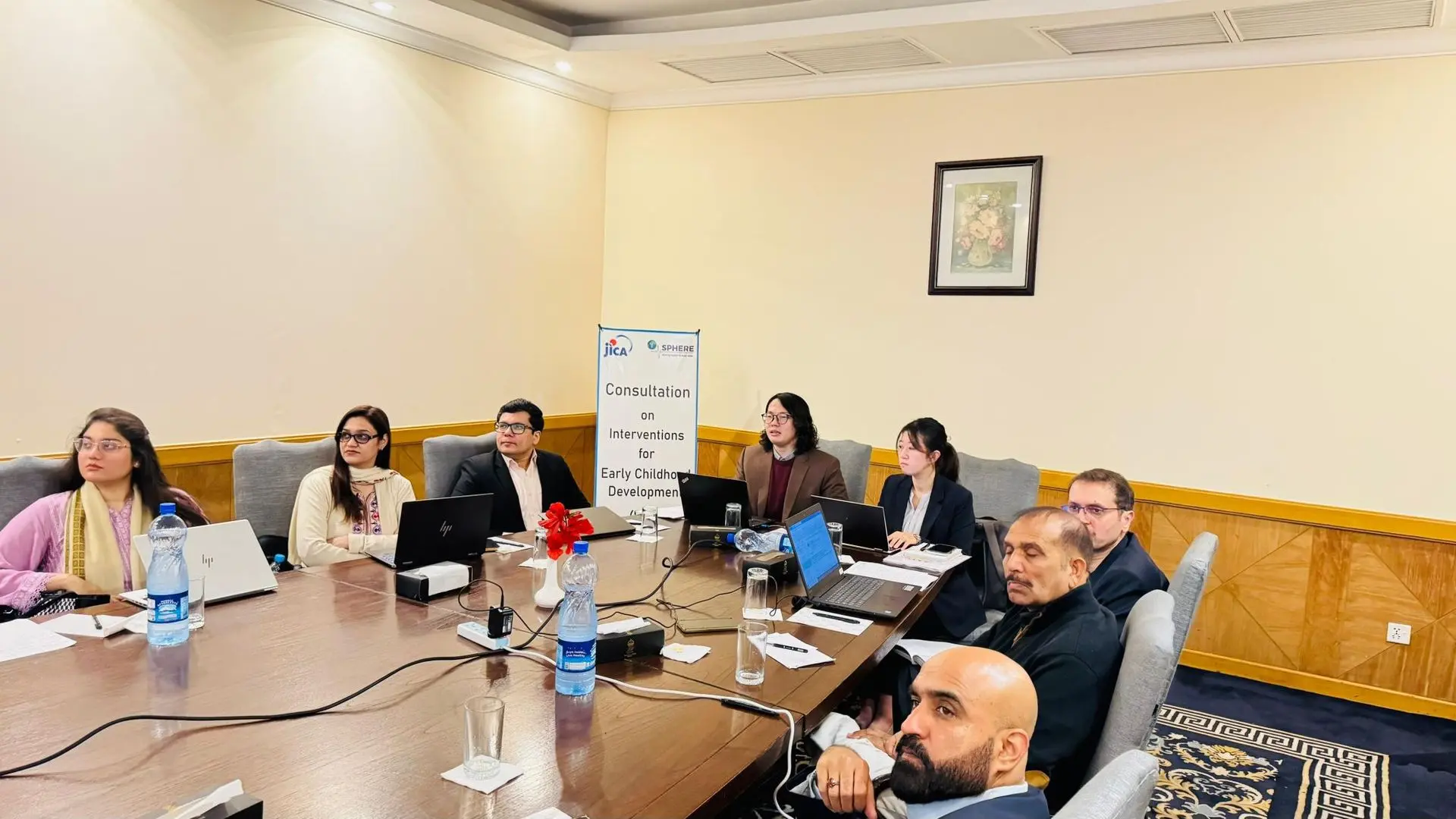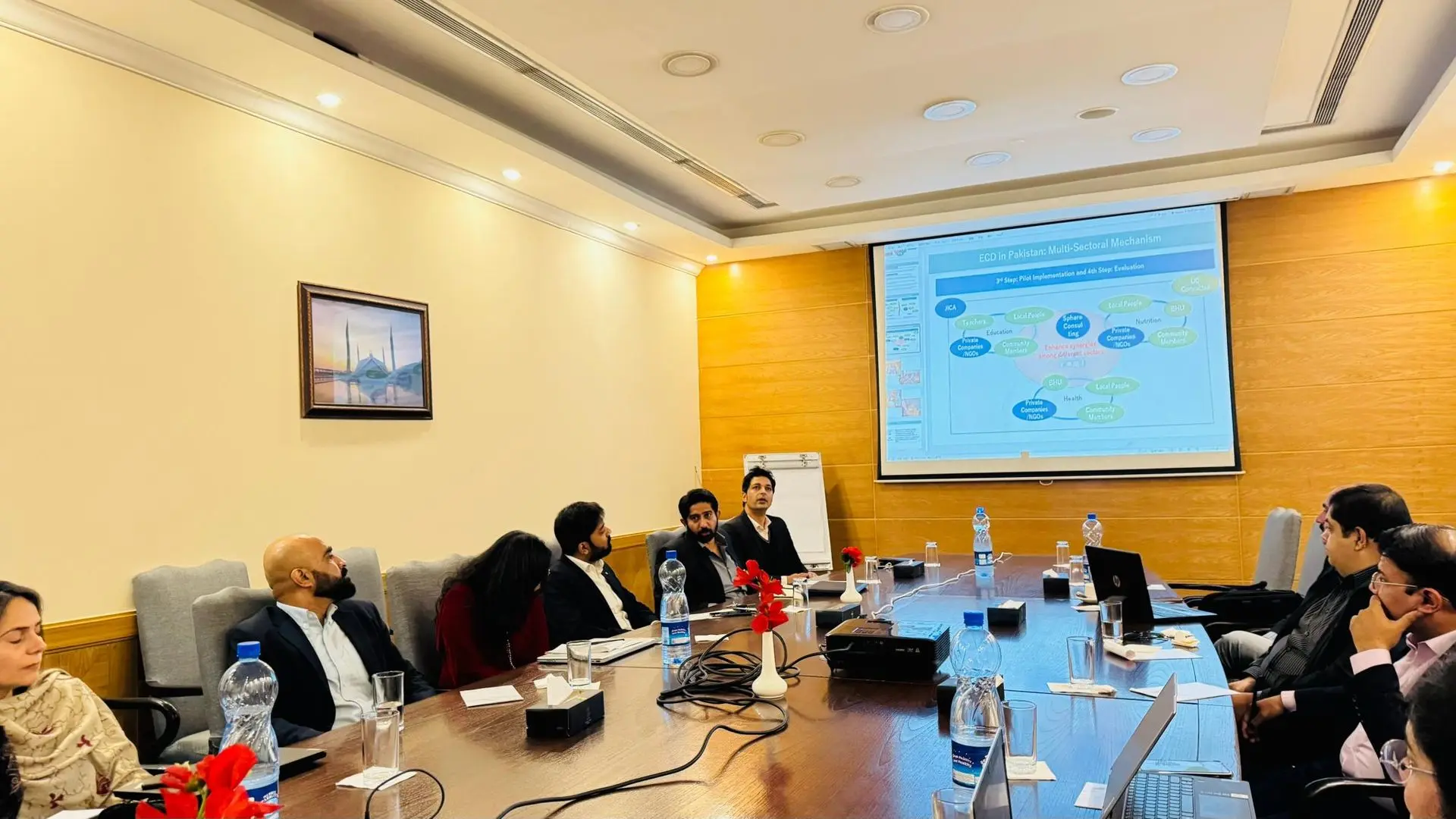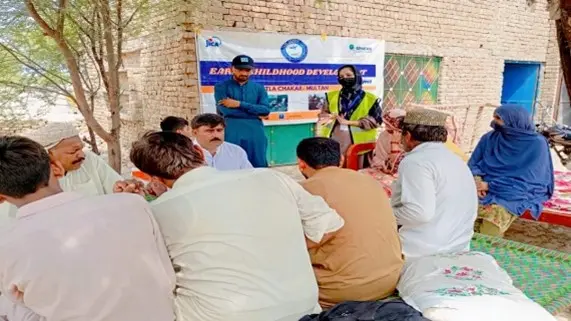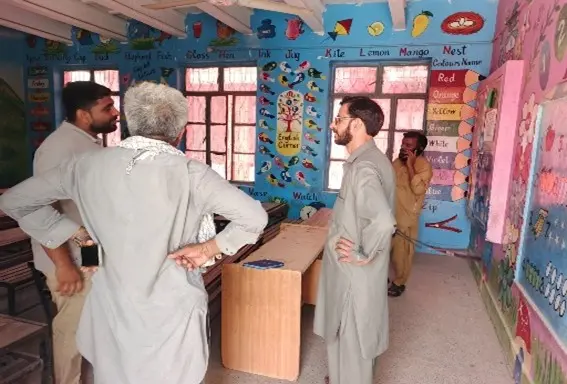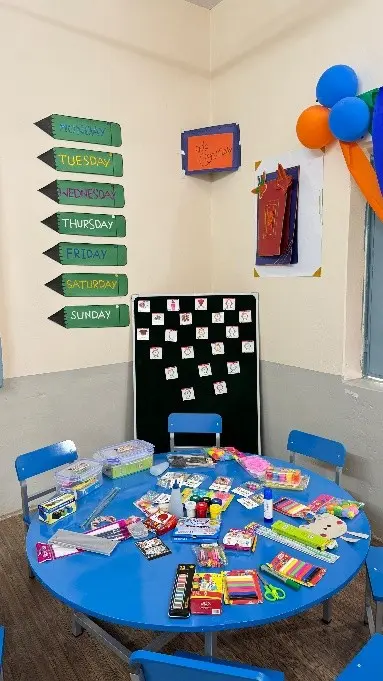Early Childhood Development (ECD)
This week (August 25, 2025), our team at SPHERE Pakistan had the privilege of initiating an important dialogue on how we can strengthen Early Childhood Development (ECD) in Pakistan. We are grateful to the Japan International Cooperation Agency (JICA) for extending their support and technical expertise to the Government of Punjab in piloting a multi-sectoral approach to ECD. This collaboration marks a significant step forward in ensuring that children in Pakistan are given the best possible start in life.
Over the coming months, we will be working closely with community-level stakeholders, parents, health workers, and educators to identify practical, locally relevant solutions that can help foster a truly child-friendly environment from birth onward. This engagement will not only highlight the importance of nurturing care but also bridge the gaps between health, education, nutrition, and social protection sectors, ensuring a holistic approach to child development.
ECD is not just an education or health issue—it is a critical foundation for overall human development and a key driver in unleashing the human capital potential of any nation. The first few years of life determine long-term health, learning abilities, and productivity, making investments in this area one of the most effective ways to secure a brighter and more sustainable future for Pakistan.
At SPHERE, we remain deeply committed to this cause and hope that our efforts, together with JICA and other partners, will pave the way for scalable and impactful models of early childhood care. I truly wish to see a Pakistan—and indeed a world—where every child grows up in a safe, nurturing, and healthy environment, empowered to reach their fullest potential.
Introduction
The SPHERE Multisectoral Early Childhood Development (ECD) Project began in Union Council Kotla Chakar, Multan, with a simple idea: to give every child the chance to grow, learn, and thrive from the very start.
Community-Led Approach
What made this initiative different was that it was driven by the community itself, under the leadership of the Union Council Management Committee (UMAC). Families, parents, teachers, and local leaders all had a seat at the table, shaping the project according to their own needs and realities.
Foundation: Nurturing Care Framework
The project was built around the Nurturing Care Framework, which looks at children’s development through five key areas:
- Health
- Nutrition
- Caregiving
- Early learning
- Protection
Identifying Needs
Things started with a Need Assessment, going door to door, talking to mothers and fathers, and listening closely to the challenges they face. Parents spoke about difficulties in accessing healthcare, the lack of safe and engaging spaces for their children, and the pressure of managing nutrition with limited resources. These honest conversations helped shape the way forward.
Turning Insights into Action
To turn these insights into action, local organizations were brought on board. Each took responsibility for a specific area. Interventions started to roll out step by step, including:
- Awareness sessions on maternal and child health
- Kitchen gardening and poultry for better family diets
- Upgrading schools and creating community learning spaces
- Teacher training
- Toy-making and positive parenting sessions
Role of UMAC
At the heart of it all was UMAC, the community’s own governance body. They didn’t just oversee the project; they drove it, making sure the work remained rooted in local realities and wouldn’t vanish once external support ended.
Impact and Legacy
This project showed how powerful things can be when communities lead the way. By bringing together families, local leaders, and service providers, children in UC Kotla Chakar are now growing up with better health, stronger learning opportunities, and more supportive care at home—laying the foundation for a brighter future.
